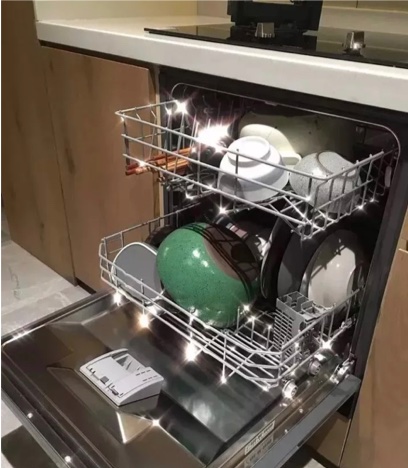
Years ago, fostering dogs seemed like something only superheroes could do in my mind. It was a wonderful deed, but seemed outright impossible to me in theory. Wasn’t it just as expensive as adopting a dog? How did people do it who had a full-time job? And most of all, how would someone do it and then not keep the dog after all is said and done? I had a lot of questions, and I didn’t know anyone who had fostered before who could answer them.
Now, though, more and more people seem to be fostering dogs. If that has you, too, considering whether or not you should open your home up to a foster dog, then you probably have a lot of the same questions I’ve always had about fostering pets.
So here are a few things you need to know—straight from people with experience.
1. Realize That It’s Not As Sad Or Hard As You Might Think
“I think a lot of people think it will be too sad, that they will find it too difficult to say goodbye to their foster dogs. It is undoubtedly very hard to say goodbye to a dog you’ve come to love, but one of my reasons for writing ‘ Rescued: Adventures with Down and Out Dogs ‘ was to show how much fun fostering can be and how rewarding it is and how that makes up for the emotional punch of saying goodbye to a dog. Feel the heartbreak and do it anyway! Because it’s not about you, it’s about the dog. ” —Jenni, author of “ Rescued: Adventures with Down and Out Dogs “
2. Don’t Think That Fostering Is Easier Than Adopting
“The thing people forget about is the same as what a lot of people forget about owning a dog in general: they are so. much. work. My partner and I initially thought fostering might be a nice way to ‘ease in’ to owning a dog, but it’s arguably more work to foster than to own. While all the dogs come with various levels of training, most of them need at least a little work, and it’s super important to be able to manage that training period without losing your patience. A lot of them have never lived in a city before, so even a dog who was perfectly behaved and housebroken down in the Texan countryside can freak out when they have to pee as the B38 bus goes barreling by. A lot of them also have separation anxiety and become very quickly attached to their foster parents, so you ideally need to have a flexible schedule where they won’t be home alone all day.” —Kara, foster through Heart & Bones Rescue
3. Consider That It Might Be More Flexible Than You Think
“Another great thing about fostering is that it’s flexible. Sometimes shelters need fosters for just a weekend , so you can get (and give) some dog love even if you can’t be a full-time pet parent.” —Ryan Boyko, CEO and co-founder of Embark , which partners with rescues like Muttville Senior Dog Rescue and the MSPCA-Angell
4. Know That It’s Helping The Shelter As Much As It’s Helping The Dog
“It also takes the pressure off a busy shelter with finite resources. Foster carers provide food for their foster dog. They act as taxi driver for visits to the vet if the dog is in foster care due to medical issues, and they can work on any training issues over an extended period of time and away from the noise and distractions in the shelter. Fostering also means that the shelter or rescue is able to build a much more accurate and detailed picture of the dog’s temperament and character so that prospective adopters know exactly what to expect. Dogs that have spent time in foster care are often sought after for that reason. ” —Jenni, author of “ Rescued: Adventures with Down and Out Dogs “
5. Remember That It’s Important To Think About Your Current Pets At Home
“If you have other pets in the home, there’s no guarantee that your foster pup will be comfortable with the other animals and vice versa. You’ll have to take care to introduce them in a safe and supportive way. Similarly, not all dogs get along well with children, so if you have little ones in the home, you’ll want to discuss that with the shelter before bringing a dog home.” —Ryan Boyko, CEO and co-founder of Embark , which partners with rescues like Muttville Senior Dog Rescue and the MSPCA-Angell
6. Be Prepared For Accidents
“…every single one of our fosters has had an accident in our house on the first night (even if they end up being completely housebroken starting on day two) so you should definitely be prepared for that, and have cleaning supplies on hand! All of this sounds intense—and it is—but I truly find the end result of getting a dog into a forever home so, so worth it.” —Kara, foster through Heart & Bones Rescue
7. Consider What Specific Type Of Foster Dog Parent You Will Be
“Consider what kind of cases you’ll be best suited to. For example if you work outside the home then you may not be suited to fostering puppies who are very time intensive. And if you do foster puppies then make sure you have a good washing machine—you’ll need it! Similarly all dogs need at least one walk a day but some need much more exercise than others . If you don’t love long hikes then don’t foster a breed like a husky.” —Jenni, author of “ Rescued: Adventures with Down and Out Dogs “
8. Consider It A Way To Get To Know Different Types Of Dogs
“ It’s also a great way to experience a range of breeds in a short space of time. I fostered 15 dogs in 18 months, among them a foxhound, a husky, a pit bull and two hilarious cairn terrier/mini pinscher brothers. I’d never really been a fan of small dogs before, but Duke and Lightning changed my mind!” —Jenni, author of “ Rescued: Adventures with Down and Out Dogs “
9. Get Ready For A Transformation
“I’d say the biggest upside to the process is the opportunity to witness a foster dog’s transformation, because it really happens with every single one. When they come to us, they’re generally a bit shy and reserved (they come straight to us after a drive from a shelter in Texas, which is very stressful). It’s our job to socialize and train them as much as possible to increase their chances of adoption! It makes me so happy when a dog who was super skittish and unfriendly becomes a loving, playful, pet who people are excited to apply to adopt.” —Kara, foster through Heart & Bones Rescue
10. Remember: For Every Dog You Foster, You’re Actually Saving Two
“The beauty of fostering is this; I didn’t save 15 dogs—I saved 30. For every dog I fostered, space was created in the shelter for another dog who got the chance to find their forever home. If you’re reading this and thinking you’d like to try fostering, I hope this convinces you. Yes, it will break your heart getting attached to the dogs and then having to say goodbye. But your heart won’t stay broken; a little piece of your next dog’s heart enters and mends it again. So gradually your heart gets less human and more dog-like. And that can only be a good thing.” —Jenni, author of “ Rescued: Adventures with Down and Out Dogs “
11. Research The Rescue Group Thoroughly
“Is the Rescue Group reputable? Read the Foster contract! Know the expectations and protocol to the process: what’s expected of the foster, what level of commitment is required for meet and greets, adoption fairs, vet visits, weekly updates (texts, photos, written notes, etc.), what will the Rescue Group do on their end to help the dog get noticed or adopted. Know their mission; you are … part of their mission through your foster work. Do you agree with their adoption process? Some rescues don’t do home checks. They just do cash and carry (very controversial).” —Maydy, SoCal Animal Rescue
12. Consider The Personal Benefits
“Many foster because they want to help, but many realize it’s the dog that ends up helping the individual … may it be with depression, anxiety, companionship, or experiencing unconditional love.” —Maydy, SoCal Animal Rescue
If you’d like to explore the possibility of fostering dogs, contact your local animal shelter or rescue organization and inquire about foster opportunities. You can locate more than 14,000 shelters and rescue groups in North America with Petfinder .












